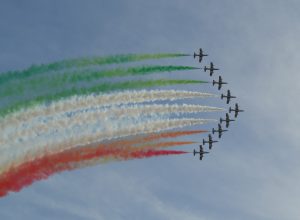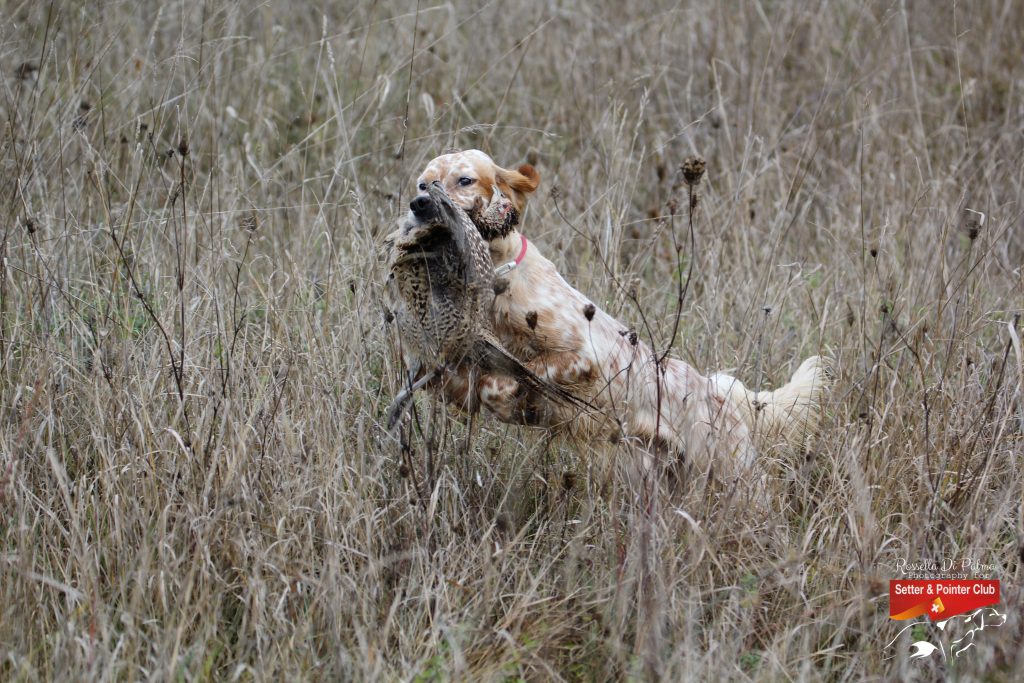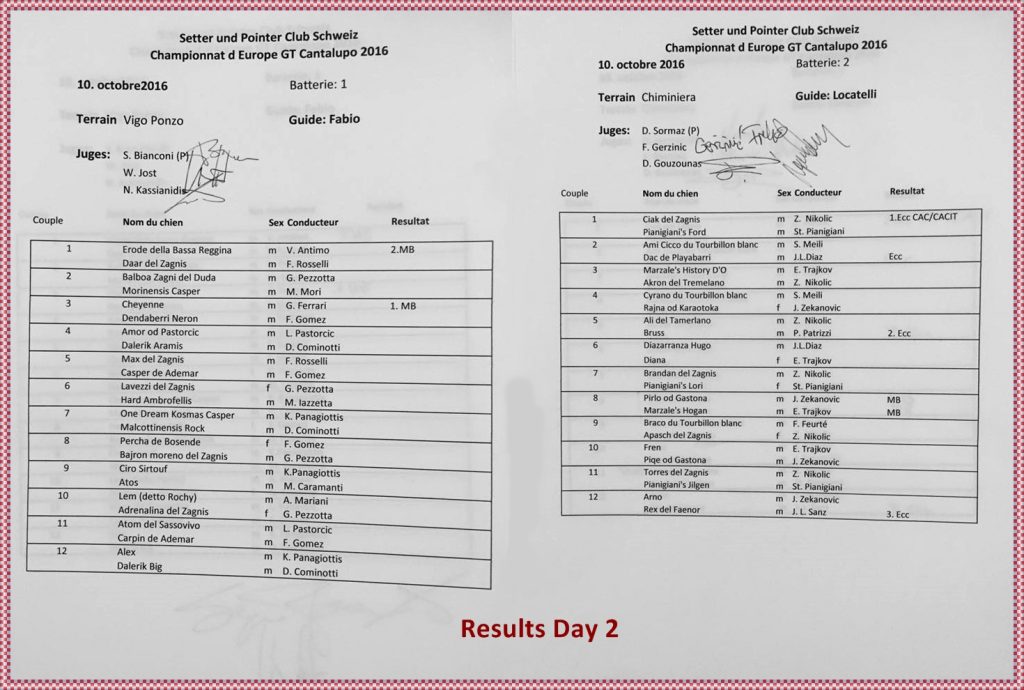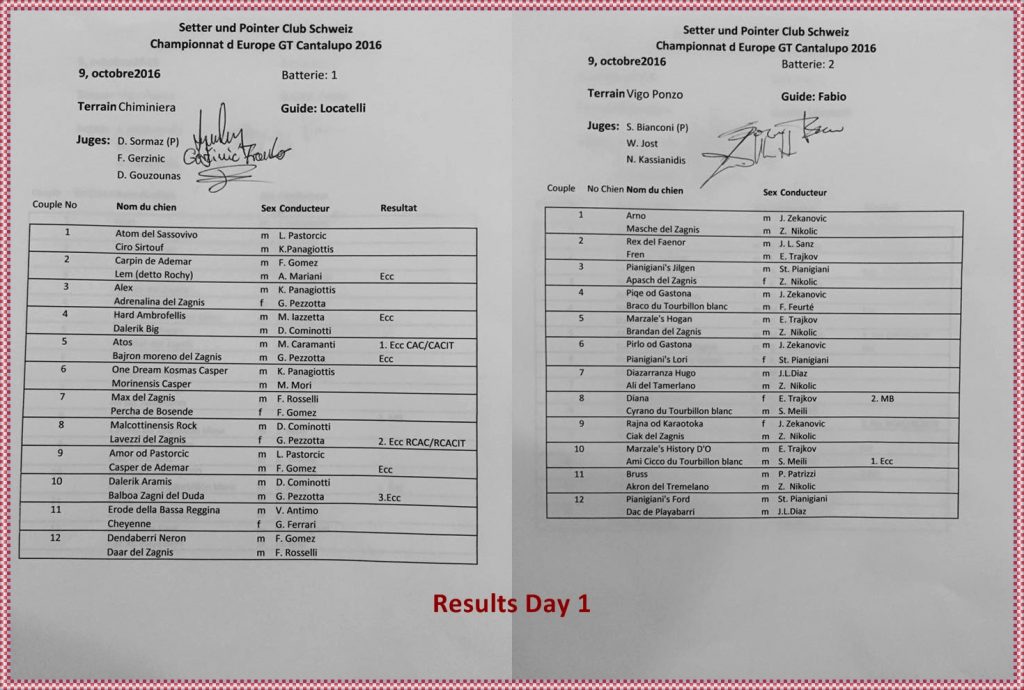On Italians training, hunting and trialing abroad
Italy won the European Cup for British Pointing Breeds (Grande Quete), the European Championship for English Setters and the European Championship for English Pointers (other results are still pending at the moment). Everybody is happy, but many rumours started and the social media went crazy. I read every sort of rumors, polemics, attacks and accuses, which I do not want to spread further, but two topics deserve a deeper analysis, especially the second one. People complain about dogs whose nationality changes to make them able to enter the competition. Right? Wrong? I think this is a grey area. Italy has a huge number of dogs whose natural qualities make them suitable to these high level competitions. There are dozens, or more likely hundreds, of Italian English Setters and English Pointers that, potentially, could do very well. No other country can claim the same but… Some dogs have been seen and campaigned more than others because there are big fishes and small fishes. If you are a sardine, forced to swim among tuna, you will soon realize you cannot afford the trendiest trainer, nor the amazingly expensive travels all over Europe to stay on the top the circuit. Your dog will not have the same opportunities of a “richer” dog, you are perfectly aware he is unlikely to be asked to represent Italy. Maybe it is a good dog but, to compete at certain levels, being good is only part of the package.
So, let’s imagine you gave up any hope to compete in the European Cup but, let’s say, Transilvania proposes you a place in its team, would you accept? And if you, Mr. Sardine, accept, are we entitled to persecute you? I don’t think so and, let’s be honest, what would any of us do, if offered such an opportunity? What would I do? I do not know, but I might say yes to a country I feel connected to ( I am not very patriotic, I know…), whereas I would probably decline the offer if it were coming from a country I don’t know anything about, nor I speak the language. This said, I do not think I have any rights to be judgmental about other people choices.
The second, more important, topic I am going to discuss still relates to foreign countries, but in another way. When I published the article on training problems in Italy and on the scarcity of game at Italian trials, someone suggested me writing something on Italians going abroad for hunting, training and trialing. Well, the truth is that, as far as small game, Italy is in a bad place. These animals are poorly, if ever, managed, and if you want to hunt or train your dog, going abroad can be a good choice. Can you train a dog in Italy? Of course you can, but it is going to be way harder, and your risk to pay in fines the same amount you will spend for a nice training holiday abroad. There is nothing wrong in going abroad to offer a dog more opportunity. If you have the time and you can afford it, why not? Serbia, nowadays is very popular, but before Serbia, Italian hunters and trainers had colonized other countries. I am not concerned about going abroad, I am perplexed about being dependent on “abroad”.
Many important Italian field trias (with CAC valid for the Italian Championship) are now run in Serbia. If you ask why, you hear different answers and some, the most convincing ones, pertains grounds, game and laws/local realities. Let’s start from grounds. Giacomo Lugari (an Italian famous hunter and video maker) , answering a post on Facebook remembered the European Cup run in 1999 in Tollara, Piedmont, Northern Italy. So the grounds… we have some suitable ones! I think so, but what about the game? The answer, this time , sadly is a no. I have never been to Serbia, but many, many Italians routinely go there and come back with happy tales about grey partridge. You cannot imagine how many partridges are there! You cannot believe! This is what they tell me and, yes I can believe them. I know what happens with grouse in the UK and I know that good wildlife management can produce tremendous results. Proper wildlife management is demanding, time consuming, costly and forces farmers, hunters, wildlife experts, gamekeepers and politicians to work together. Something must be sacrificed and people must learn to negotiate good meeting points, this is difficult but not impossible.
Someone justify Italy stating that Serbian agricultural techniques are 50 years older than ours and that this is a good thing for greys. Probably but… If we truly are 50 years ahead, we should be able to use our more advanced knowledge to recreate an habitat that might suit greys. I refuse to believe this cannot be done: do you remember Reinaissance? Italy gave birth to Leonardo da Vinci and other geniuses and now, their descendents, cannot successfully manage four birds?
And what about the money? In Serbia up to 500 dogs run in a day. Each entry costs 30 euros, multiply them for 500 and subtract something for “expenses”. Accessing training grounds costs about 100 euros a day (regarldess of the number of dogs you have with you), so remember about these money as well. I am a terrible accountant, but I came to the conclusion that Serbian grey partridge are producing quite an income. The Serbians have been smart in recognizing this and I think that grey partridge are improving the lives of those living there. There are the training grounds money, the field trials entries, people staying in hotels, people dining in restaurants… The Serbians are doing the right thing, and the Italians? What shall we do, besides thanking them for the opportunities they provide us? I think that maybe we shall get inspired and consider the grey partridge an excellent business partner: some more determined people would resuscitate dinosaurs for similar amounts of money!
The laws, adds someone else, we have more bureocracy and more rules than Serbia. We have animal right activist and an outdated law on wildlife management and hunting. This law must be changed , says someone else, but in Italy is hard to be proactive, each time you try, obstacles get thrown in the way. This is true, but is this enough to give up the hope in a better countryside, for better fieldsports? I truly don’t know.


